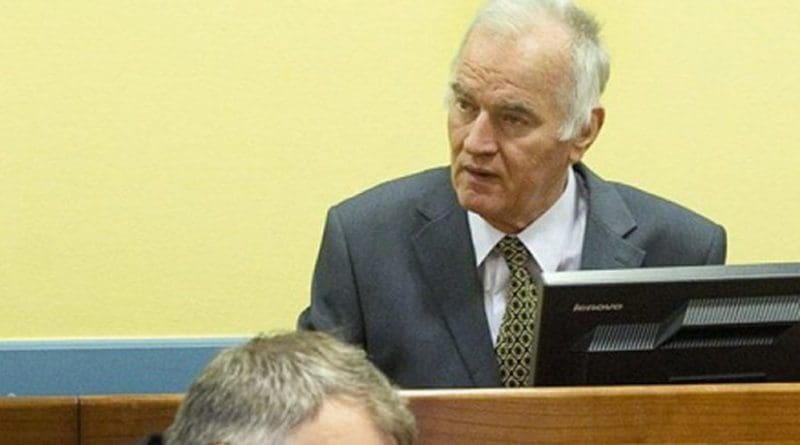Serbia Declares Mladic Aides’ Indictment A State Secret
By Marija Ristic and Filip Rudic
Serbia’s prosecution told BIRN that the indictment of 11 people who allegedly helped Bosnian Serb Army commander Ratko Mladic hide in Belgrade while he was a fugitive has been declared a state secret.
The Serbian public prosecutor’s office has rejected a request to provide BIRN with the indictment against 11 people who were tried for helping former Bosnian Serb military chief Ratko Mladic to hide while he was on the run from an international arrest warrant issued by the International Criminal Tribunal for the Former Yugoslavia.
The prosecutor’s office said that the indictment had been classified as confidential because releasing it could damage Serbia’s reputation internationally.
“The First Basic Public Prosecution has the requested information which is labelled a state secret, as in the abovementioned case there is great danger to society due to criminal actions that may have as a consequence endangered the international reputation and status of the Republic of Serbia,” it said in a written response to BIRN’s request.
After Mladic’s arrest in 2011, many former officials, including former President Boris Tadic, claimed that the former Bosnian Serb general had the active support of senior Serbian military and state security staff who often leaked information to him and his aides to help him dodge arrest. No charges have been raised in connection with these allegations.
BIRN has previously reported that the Serbian army and police systematically obstruct public access to information that could expose their officers’ involvement in wrongdoing during the 1990s wars.
According to Serbian law, an indictment is a public document, but in some cases prosecutors redact some information in order to protect privacy.
However, to BIRN’s knowledge, no indictments have ever been declared a state secret until now.
The director of the Lawyers’ Committee for Human Rights, Milan Antonijevic, also said he could not recall any such incident.
“They can increase the secrecy level of certain parts of the document but… the document in its entirety cannot be declared a secret,” Antonijevic told BIRN.
Lawyer Marina Kljaic, who follows war crime trials for the Belgrade-based Humanitarian Law Centre, also said she had never heard of such a case.
Kljaic said that once an indictment is confirmed, there is no legal basis in the criminal procedure code for it to be declared a state secret.
The defendants in the trial, Marko Lugonja, Stanko Ristic, Ljiljana Vaskovic, Borislav Ivanovic, Predrag Ristic, Sasa Badnjar, Ratko Vucetic, Tatjana Janjusevic Vaskovic, Bojan Vaskovic and Blagoja Govedarica, were charged with hiding Mladic in an attempt to prevent his extradition to the UN court in The Hague.
In August this year, the Serbian Appeals Court acquitted all of them except Lugonja, who admitted his guilt and was sentenced to six months in prison.
Mladic – whose trial verdict is due to be pronounced in The Hague on November 22 – was on the run for 16 years, evading charges of genocide and war crimes in Bosnia and Herzegovina.
He was finally arrested in 2011 while hiding at a relative’s house in the village of Lazarevo in Serbia.
He fled Bosnia and Herzegovina in 1996 and it is believed he spent most of his time as a fugitive at various locations in Serbia.
From 1996 to 2003, when Serbian authorities adopted a law on cooperation with the Hague Tribunal, Mladic had the support of Yugoslav Army personnel and a special unit of mainly Bosnian Serb army officers to assist him.
At that time, Mladic mostly lived in his apartment in Belgrade and was often seen in public.
At the end of 2002, when the UN court intensified its cooperation with the Serbian authorities, Mladic turned for help to his closest associates, including former Bosnian Serb intelligence chief Zdravko Tolimir, who was also wanted by the Hague Tribunal for genocide in Srebrenics.
Once Tolimir was arrested, Mladic relied on his family to help him evade capture. For most of that time, Mladic lived in various apartments in and around Belgrade.

